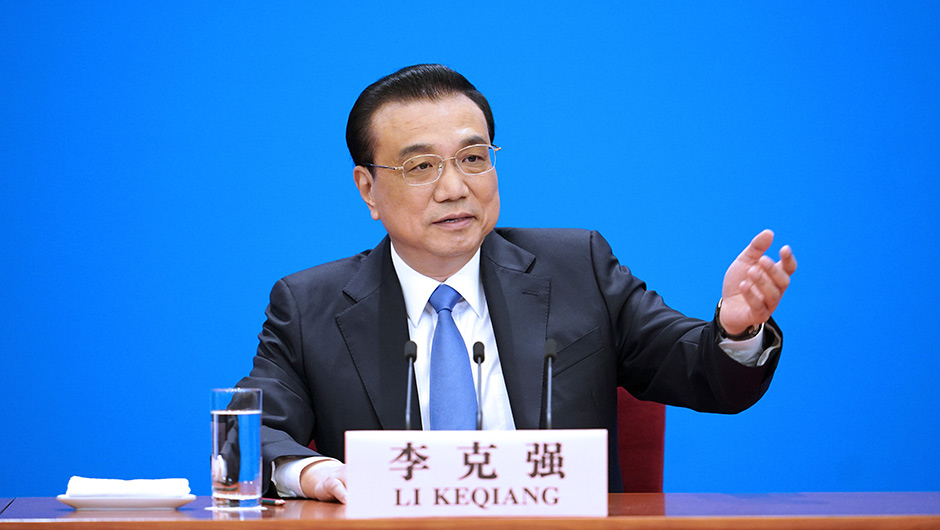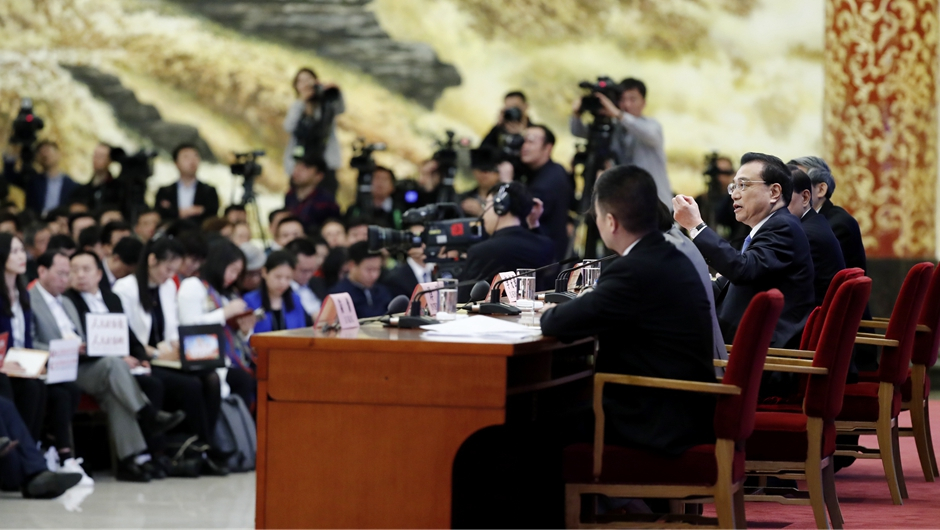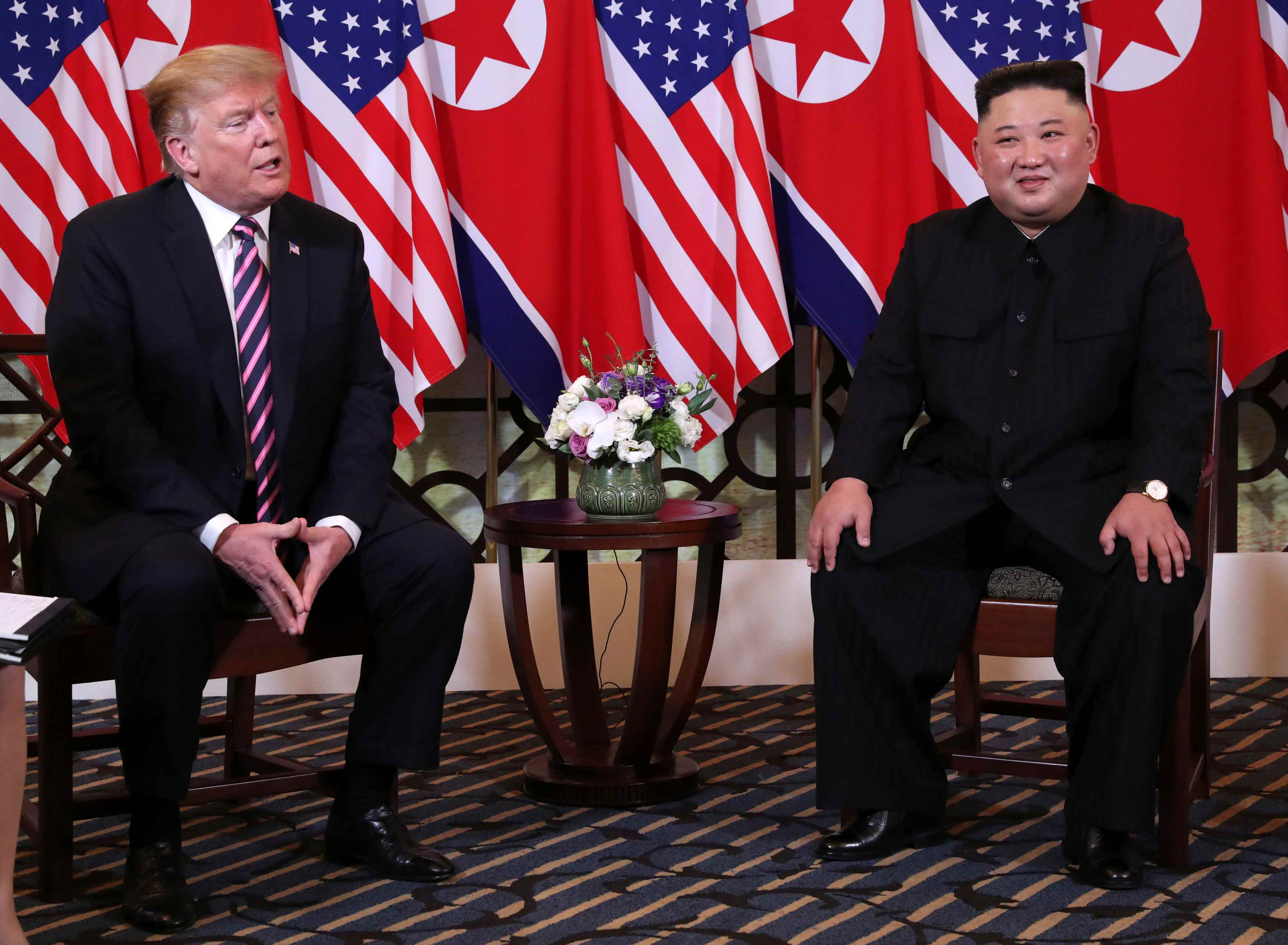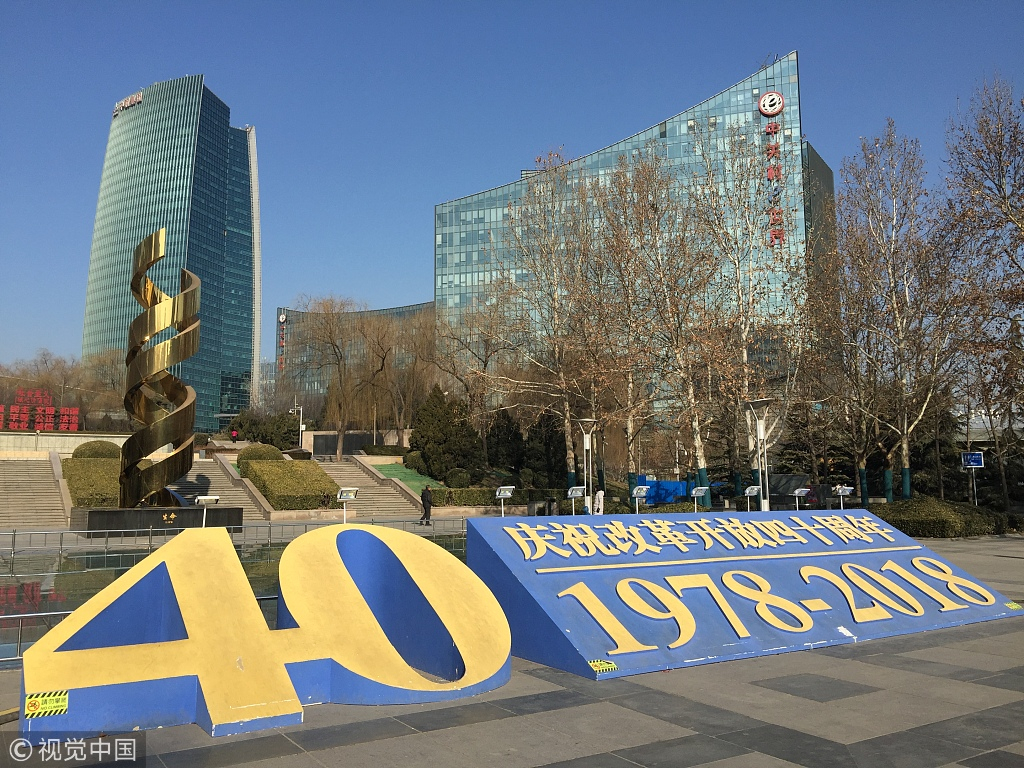
Domestic
10:30, 15-Mar-2019
Highlights: Premier Li meets press after national legislative session ends
Updated
14:30, 15-Mar-2019
CGTN

Chinese Premier Li Keqiang met the press on Friday at the Great Hall of the People after the conclusion of the annual session of the National People's Congress, the national legislature.
Here are the highlights from the press conference:
On economic growth
It is true that China's economy has encountered new downward pressure, as part of a global trend, noted Li.

Xinhua Photo
Xinhua Photo
Last year, people across China made a strong united effort to advance our supply-side structural reform and China achieved the GDP growth goal of 6.6 percent, said Li, adding that the country has sent a message of stability to the market.
Li also vowed to continue to take measures to boost vitality in the market so that China will have a stronger dynamism for development.
Read more:
On tax cuts
In the past several years, China has worked to replace business tax with value-added tax (VAT).
Three trillion yuan in business tax have been cut over the past three years, which is fairly large scale tax reduction, Li told the reporters.
The government will launch a larger-scale round of tax reductions and fee cuts, which Li said will be a key measure for the country to deal with downward pressure on China's economy.
"This year we will make reductions in VAT and localities social insurance contributions, with two trillion yuan worth of reductions to all companies," said Li.
On Korean Peninsula issue
The Korean Peninsula issue is a long-standing and complicated one, which cannot be resolved overnight, Li noted.

U.S. President Donald Trump (L) and DPRK leader Kim Jong Un sit down before their one-on-one chat during the second Trump-Kim summit at the Metropole Hotel in Hanoi, Vietnam, February 27, 2019. / Reuters Photo
U.S. President Donald Trump (L) and DPRK leader Kim Jong Un sit down before their one-on-one chat during the second Trump-Kim summit at the Metropole Hotel in Hanoi, Vietnam, February 27, 2019. / Reuters Photo
It's important to stay patient and promote dialogue, especially between the DPRK and the U.S., Li added.
Li has also reiterated China's stance, saying the country is committed to a denuclearized peninsula.
"We hope there will be peace and stability on the peninsula. It is in the regional and global interest," said Li.
Read more:
On China-U.S. ties
Since the establishment of diplomatic ties 40 years ago, the China-U.S. relationship has been forging ahead and it has achieved fruitful results.
The twists and turns are changing. However, the trend of moving forward has not changed, Li stressed.
"Our common interests are far greater than differences. Maintaining a stable bilateral relationship is not only beneficial to both parties, but also beneficial to the world," Li said.
As the world's two largest economies, China and the U.S. have become closely entwined through years of growing their relationship. It is neither realistic nor possible to decouple these economies, Li added.
Read more:
On China-Russia ties
Asked about China's relationships with Russia, Premier Li called on the two countries to exhaust all means possible to double their trade value.
Bilateral trade exceeded 100 billion U.S. dollars last year despite sagging global trade growth, he said.
Read more:
On reform and opening-up
Through 40 years of reform and opening-up, China has made remarkable achievements, delivering benefits to all of its population, Li said.
The government will continue to pursue market-oriented and law-based reforms to ensure that concrete outcomes will be delivered through specific actions, Li told reporters.

VCG Photo
VCG Photo
In carrying out reform, the government must create an environment that enables the market to perform its role in enabling resources, Li said.
When asked if the Chinese government will ask Chinese companies to spy on other countries, Li said it is not consistent with Chinese law.
"This is not how China behaves, we did not do that and will not do that in future," replied the premier.
Read more:
On cross-Strait ties
China upholds the one-China principle and the 1992 Consensus and opposes so-called "Taiwan independence", Li said.
A total of 31 measures have been introduced last year to promote economic and cultural exchanges of cross-Strait relations, Li noted.
Read more:

VCG Photo
VCG Photo
On job markets
Li told reporters that some 15 million new entrants enter the labor force each year.
That figure will not decline in the foreseeable future, Li said.
China believes creating jobs is just as important as the country's fiscal and monetary policy, said Li, vowing to provide 11 million new urban job opportunities this year, as job creation remains a major challenge.
Read more
On foreign investment law
Regulations will be launched to put the Foreign Investment Law into practice, said Premier Li, adding that China will open up more sectors to foreign investment.
We will introduce a mechanism of punitive measures to seriously deal with infringements, Li said.
We attach high importance to investment from the Hong Kong and Macao special administrative regions (SARs) and Taiwan region, stressed Premier Li.
The State Council will formulate regulations and policy documents and listen to the views of our fellow Chinese from these three regions to ensure their lawful rights are protected, Li said.
Click here to watch the press conference.
1km

SITEMAP
Copyright © 2018 CGTN. Beijing ICP prepared NO.16065310-3
Copyright © 2018 CGTN. Beijing ICP prepared NO.16065310-3